Vietnam has just been accused of manipulating the Vietnam Dong(VND) to boost exporting into US, But Is Vietnam Really Manipulating Its Currency? Let’s have a talk with experts from Vietnam to see whether this is the truth or just made up by the US government to protect its domestic companies.
Vietnam’s curent money policies
Vietnam is striving to build a modern, stable and transparent business and investment environment, a destination for international human resources and capital flows, it is obvious that Vietnam “devalues the currency” is a unreasonable. Because no source of capital or wise investment decision is to choose a risky destination when the currency is actively devalued.
First, it must be affirmed that Vietnam is not a currency manipulator. This was officially answered by the State Bank of Vietnam on December 17, 2020, a day after the US Department of Finance released its report on “Macroeconomic and foreign exchange policies of major trading partners. of the US ”in which Vietnam, along with Switzerland, is manipulating currency.
The State Bank has asserted that Vietnam’s monetary policies, which are enacted for various macroeconomic purposes, are definitely “not aimed at creating an unfair international trade competitive advantage”.
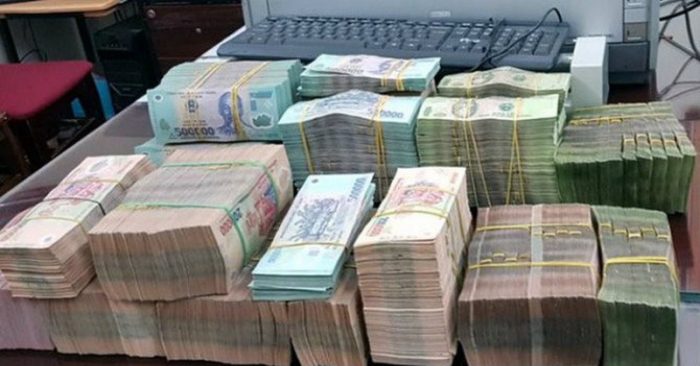
More importantly, an in-depth analysis of Vietnam’s development strategy will also see clearly why Vietnam has no intention and action of “currency manipulation” for its benefit.
For the US, the label “currency manipulation” is determined mainly by a country continuously devaluing its local currency (notional or actual value) in order to make its exports cheaper and increase the ability to penetrate international markets, especially the US market.
This is probably a plausible strategy for economies implementing export-oriented countries, such as China 1990-2010 or Hong Kong (China). Singapore, Ireland today.
However, Vietnam opens its economy to the broader goal of integrating, connecting and catching up with the general development of the world. On the one hand, Vietnam is ready to promote and supply to the world its unique products, such as agricultural products, footwear, textiles, electronic goods, … and is ready to import other products as required. in the domestic market, including electronic components, cars, aircraft, phones, agricultural products and other materials.
Most importantly, Vietnam is striving to build a modern, stable and transparent business and investment environment, a destination for international human resources and capital flows.
When understanding Vietnam’s economic development strategy like this, it is obvious that Vietnam “devalues the currency” is unreasonable. No source of capital or wise investment decisions wants to choose a risky destination when the currency is actively devalued. So this is also something that Vietnam definitely doesn’t want to do.
Why is Vietnam accused of manipulating the Vietnam Dong
The concept of “a nation manipulating money” of America
The concept of “currency manipulation nation” is a unique US product, the only US institutionalized as a content in the Omnibus International Trade and Competition Law 1988.
Dr. Nguyen Xuan Hai
In this Law, the President of the United States, through the Treasury Department, is required to report twice a year on economic policy and international exchange rates, covering many aspects such as trade surplus, current balance surplus, foreign exchange trading, monetary policy, capital control policy, exchange rate action, foreign exchange accumulation and all other related activities.
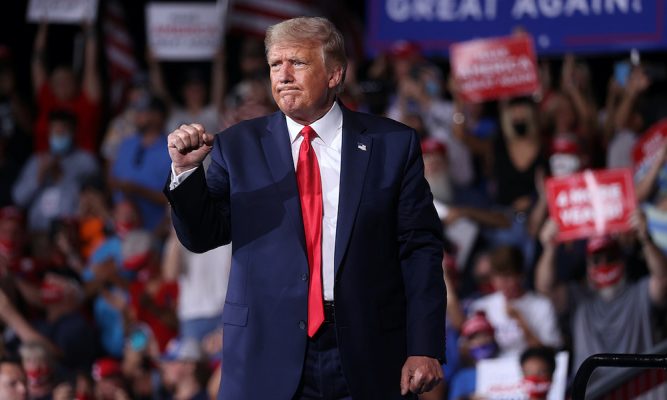
On the basis of the overview report, the US President can label a “currency manipulation” for a country and has the power to accelerate negotiations, either directly or through the International Monetary Fund (IMF), to love demand for those countries to make appropriate policy adjustments.
Pursuant to this Law, when a country is determined to be a currency manipulator, it will not be allowed to enter into economic contracts with the US Government.
In 2015, under President Obama, the Trade Facilitation and Trade Enforcement Act was issued, which required the Ministry of Finance to report to each major trading partner and Expanding “sanctions” to countries identified as currency manipulation, for example the introduction of tariffs and trade barriers. However, measures can only be in place after at least one year of negotiation.
Since then, the US Treasury Department has made regular reports based on three criteria, including (i) Bilateral merchandise trade surplus with the United States of at least 20 billion USD; (ii) Current account surplus is equivalent to at least 2% of GDP; (iii) One-way and prolonged intervention in the foreign currency market, represented by net buying of foreign currency for at least 6 months in a period of 12 months with total foreign currency net buying in 12 months equivalent to at least 2 % Of GDP. When a country “satisfies” all three criteria, the US will label the “country manipulating money” and the next steps are taken.
Up to now, the US has relied on its unilateral report and labeled Korea in 1988, Taiwan (China) for the first time in 1988 and the next in 1992. China for 3 consecutive years from 1992 to 1994.
Notably, in August 2019, China was also labeled “currency manipulation” but did not derive from any reports. When reporting period January 2020 was announced, China did not violate all three criteria mentioned above and so the tag “manipulating currency” was also removed.
Why US’s money manipulating statement is not persuasive
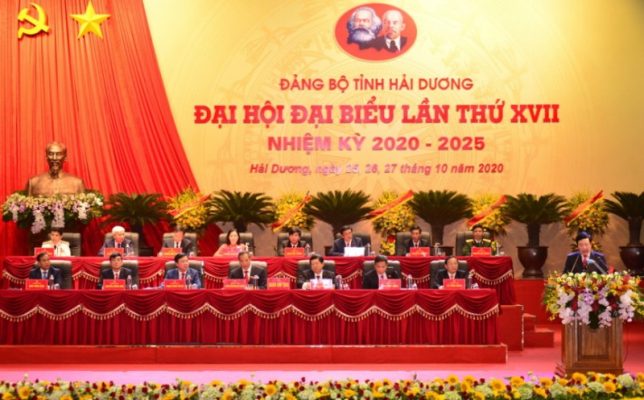
First, in theory, the three criteria given by the US Treasury Department are not a solid basis for determining whether or not a country manipulates currency. As noted above, for the United States, the term “currency manipulation” is used to define a country intervening in its foreign exchange rate, devaluing its domestic currency against the US dollar (value nominal or real) to boost exports, especially to the US.
However, up to now, there is no international economic – financial theory that can confirm the “correct exchange rate” between two currencies, as well as the criteria to determine this rate.
In the simplest theoretical framework for the nominal exchange rate, the market rate, for example between VND and USD, is usually determined relative by (i) the base interest rate in Vietnam; (ii) the prime interest rate in the US; and (iii) long-term monetary policy of both countries. And according to this theoretical framework, with the interest rate policy already at a record low and the base currency more than quadrupling since the 2008-2009 crisis up to now, it seems that it is the United States that wants to do it. Dollar books are weak and have a tendency to “manipulate money”.
In addition, if the “real exchange rate” is used as a measure in determining the “currency manipulating country”, the most basic theoretical frameworks on the “real exchange rate” also require a lot of weakness. specific factors of the economy, such as level of development, average income and the composition of shopping baskets corresponding to the economy are evaluated and carefully studied.
Using indexes that simulate “real rates”, such as the “Big Mac” index based on the prices of McDonald’s burgers, an index developed by The Economist Magazine, or the Billy Index. According to Bloomberg, the global “Chai Latte” index of Versus or official indexes proposed by the IMF and other countries, “real exchange rate” between currencies often has a large difference. It is very difficult to evaluate a currency with its real value higher, or lower than another, that is very difficult, if not impossible.
In other words, the US Treasury Department’s use of the three above-mentioned criteria to define “a currency manipulating country” is lack of a solid scientific basis, not going into the nature of the problem. The logic between the three proposed criteria and the “currency manipulation” almost does not exist.
Second, in practical terms, right or wrong, the US government is the executive government and the US Treasury Department is making reports on the basis of serious compliance with domestic laws.
This is evident in all the previous reports that can be found on the US Treasury Department website. [1] The people responsible for preparing the report adhere to a basic outline framework, with consistent criteria and a transparent assessment of the current state.
With such criteria, at least for the past 5 years, when a country “satisfies” two of the three above-mentioned criteria is put on the watch list; “Satisfied” all three are included in the list of “currency manipulation”. Although the tag “manipulation of currency” does not properly reflect the connotation of the term, the nature of the “labeling” action in the report is a purely technical action in this case.
In other words, the fact that Vietnam is on the “currency manipulation” list in the most recent report is not a negative signal in the growing diplomatic relations between Vietnam and the United States, as well as President Trump’s personal interest in Vietnam.
Thus, judgments and doubts about potential factors related to political conflicts can be eliminated; instead, purely technical and economic problems need to be studied and addressed as a matter of priority.
What will happen next?
From the perspective of crisis control, increasing foreign exchange reserves through the purchase of US dollars – the dominant currency in international reserves and payments – of Vietnam is a classic crisis prevention move. figure in regulating monetary policy of any country.
Dr. Nguyen Xuan Hai
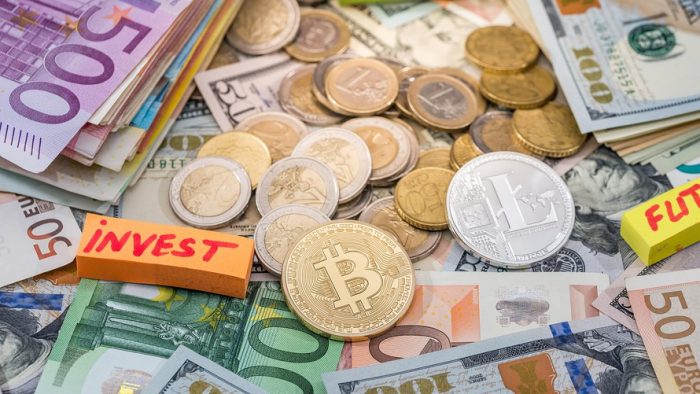
It can be said that one of the leading reasons causing Vietnam to fall into its current position stems from its outstanding success in the prevention of Covid 19 epidemic and Vietnam’s efforts to support other countries. respond to epidemics.
When the Covid-19 epidemic broke out and lasted for the whole of 2020, Vietnam stood out in the international picture with its ability to successfully control the epidemic. Aside from the first 15 days of April forcibly implementing widespread social disparity, Vietnam’s domestic economic activities run almost normally throughout the year.
Contrary to that, most countries in the world, especially big countries such as Korea, Japan, European countries and America … have to constantly prolong, even increase the gap measures. on a large scale, profoundly influencing socio-economic activities in those countries.
The situation of factories closed, supply chains broke down, the number of unemployed skyrocketed … took place in most countries.
Particularly in the US, the unemployment rate reached 14.7% in April 2020; 44.2 million workers are affected by the epidemic as of June 2020; and US GDP also grew (year on year) at a negative 31.4% in the second quarter of this year.
In that context, the Vietnamese economy is still basically operating normally. In particular, when other economies fell into a state of stagnation, Vietnam, in addition to implementing entry restrictions to control the spread of epidemics from outside, still maintained export activities. international markets, including the US.
Not only that, when countries need to import medical equipment and consumer goods to serve the epidemic prevention and response, Vietnam is also among the few countries that can meet the demand.
In addition, the US-China trade tensions from 2018 up to now together with China being the first country heavily influenced by the Covid 19 epidemic have resulted in the export value of some Chinese goods to the US. , including electronics, furniture, mechanical machinery, footwear, apparel etc. – Vietnam’s advantageous products – fell sharply.
Vietnam, with its available internal resources, has successfully exploited the gap in the consumer demand of the American people to boost exports, increasing the ability to respond to the US consumer market throughout 2020. That success is reflected in the fact that Vietnam’s trade balance, especially with the US, is strongly inclined towards surplus.
From the perspective of crisis control, increasing foreign exchange reserves through the purchase of US dollars – the dominant currency in international reserves and payments – of Vietnam is a classic crisis prevention move. figure in regulating monetary policy of any country.
During the two years of 2019-2020, all countries, including Vietnam, are always threatened by the specter of financial and economic crisis when the US – China trade tension always shows signs of escalation and epidemic. Covid-19 is prolonged, showing no signs of deterioration.
From the lessons of the Asian Financial Crisis 1997, the Global Financial Crisis 2008-2010 and from the advice of developed countries (including the US) and global financial institutions (such as IMF). Developing countries and emerging economies like Vietnam all need a large amount of foreign exchange reserves to avoid or handle financial and economic shocks.
In particular, in the actual conditions of Vietnam as a country that has attracted quite a large amount of FDI in recent years, and therefore, it is also quite risky if foreign investors suddenly withdraw capital in case of crisis. panic, the increase in foreign currency accumulation is an indispensable thing Vietnam needs to do to prevent risks, ensure macroeconomic stability and maintain growth momentum in the coming years.
Thus, up to the time of the Report of the US Department of Finance dated December 16, 2020, Vietnam “violated” all three criteria of trade surplus with the US, trade balance surplus and purchasing foreign exchange is for objective reasons such as the Covid-19 translation; for the success in the fight against the Covid-19 epidemic; as well as the proactive in assisting other countries in fighting epidemic; and for the macroeconomic stability as well as the growth momentum of Vietnam in the coming years.
As analyzed above, the three criteria that the US Department of Finance is applying, not only has no rationale, but also lacks practical basis to label “currency manipulation” for Vietnam in the medium period.
How Vietnam will be affected when labeled as a currency manipulator
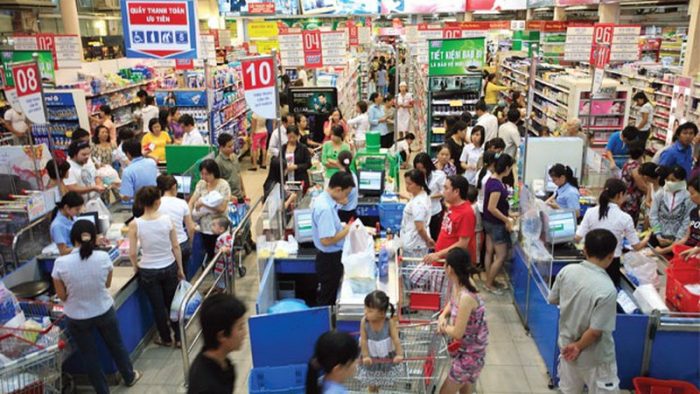
In the next period, the label “currency manipulation country” is expected to not affect much socio-economic development of Vietnam as well as the full partnership between Vietnam and the United States. .
Firstly, after the results of the Ministry of Finance Report are released, the two countries will have to base themselves on these results to carry out trade and non-trade negotiations lasting one year before any US sanctions are applied. The negotiation process will help the two countries better understand each other and serve as the basis for proposing and agreeing reasonable solutions for both sides.
Second, when the epidemic is under control with the widespread introduction of the anti-Covid-19 vaccine on the market, the world economy will gradually restore its normal state, bringing the international trade environment back to equilibrium. long-term. At that time, the cumulative measures to prevent economic and financial risks will no longer be a priority and will be reduced.
Thus, the indexes of Vietnam in the three US criteria will also return to normal status, faithfully reflecting the economic relationship between the US and Vietnam in the next reports. It is also expected that Vietnam is removed from the list of “currency manipulators”.
Vietnam’s immediate task is simply to understand the true nature, stabilize the sentiment of the domestic economy, strengthen foreign investors’ confidence, and continue to focus on economic development strategies. economic – long term society.
